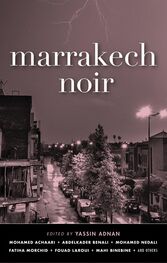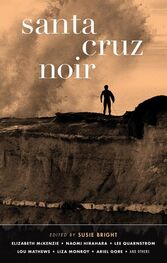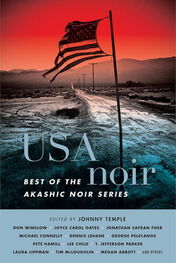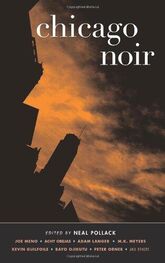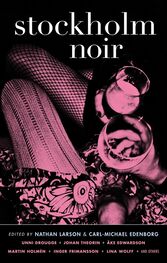
Introduction
Put on the Night
Eddie Muller: I grew up in San Francisco in the sixties and seventies, so my impression of Oakland — an impression the media fostered — was the badass black brother across the bay. Definitely dangerous. That was my image of Oakland from an early age. The Black Panthers, the Nation of Islam, right down to Jack “The Assassin” Tatum and the outlaw Oakland Raiders. Scary, mean, borderline uncivilized. It took awhile to wise up and grasp the political and economic realities behind the image. Now that I’ve lived in the East Bay for almost thirty years, I’ve come to understand and appreciate the hardscrabble, working-class roots of Oakland — and I prefer it to what San Francisco has allowed itself to become.
Jerry, as a transplanted East Coaster, what were your first impressions of the city?
Jerry Thompson: Like you, I saw the city as a place soaked in racial and political contradictions. Scary, fabulously underrated, and fabulously criminalized. It’s the mothership of delicious and dangerous bad lighting and double gin martinis.
My first impressions are of full busloads of soul music — loving, twelve-year-old superstar ghetto celebs, crackin’ on each other while laughing about the day and the years before them. It all blazed fearlessly in front of my nine-year-old East Coast eyes. I was seduced by an ancestral internal drumming that I knew little about but felt deeply — in the folks who looked like me, danced like me, and fought like me on classic soul recordings, dance floors, black movement magazines, and articles shared by Hazel and Larry, my wildly funky parents. It was no accident I was inspired by the collage of blaxploitation posters spread across entire walls in our ghetto-fabulous TV room with its shag carpet. Remember those?
EM: Yeah, I remember... though I had other stuff on my walls. So what you’re saying is that while everybody else was coming to San Francisco wearing flowers in their hair, you had your sights definitely set on Oakland.
JT: Discovering the wang-dang-doodle jams of the Pointer Sisters shifted my entire focus. Stunning black women were scatting and bebopping all the way into my soul. I think what we’ve put together in Oakland Noir is a volume where this city is a character in every story. He’s a slick brother strutting over a bacon-grease bass line and tambourine duet. She’s a white chick with a bucket of hot muffins heading to farmer and flea markets, to sell crafts and get hooked up with some fine kat with dreadlocks and a criminal record. And it’s in the faces of young fearless muthafuckas pounding keyboards and snapping fingers, lips, Snapchats, and Facebook timelines. It’s the core of not only Black Lives Matter but all lives matter. We are the children of fantasy and of the funk.
EM: My hometown did not have a Tower of Power. The funk was definitely on the east side of the bay.
JT: Yes, back then inviting some fucker to a party in the East Bay was like asking them to murder your dog. The rusty blue and gold cranes and flickering shipyard lights were like the hems of red leather skirts or second-hand leather bomber jackets, winking into the startled blue and green eyes of Bay Area transplants who have begun to remove the soul of what was created — forgetting that Oakland, with all its myth, was still a city that held a grudge.
EM: Oakland was once considered a predominantly African American city, so I find it interesting that the cultural mix happening here now is much deeper than in the once-liberal bastion of San Francisco. That’s been going on for a while, but now the landowners and developers in San Francisco seem to be aggressively marginalizing everyone who’s not a high-paid techie. So Oakland is picking up the slack, whether the old guard likes it or not.
There’s this restaurant in downtown Oakland called Le Cheval, a Vietnamese place; it’s huge and bustling and has survived numerous attempts to displace it. Every time I eat there I feel like the great American experiment has actually worked. A Vietnamese immigrant family runs the place and the patrons are a cross section of the city: middle-class African Americans, starving artists, Catholic nuns, blinged-out gangbangers, off-duty cops, relocated hipsters, Raider cheerleaders celebrating a birthday. Feed us well and we’ll all get along!
JT: I would only discover Oakland’s true voice after realizing one day that I had been living here longer than all the years back east put together. I was not a native but I was not a stranger. Being afraid, and pretending not to be, was like stretching myself out. Learning how to stare life in the face as a black man in a city of black men systematically being erased. I’d find myself in conversations with brother and sisters who loved testifying that they were born and raised in Oakland. Born and raised, a native to all first impressions.
EM: My favorite Oakland moment was when I went with my wife to Maxwell’s, a downtown nightclub — now closed, sadly. It may have been the one time I went out into the night kinda hipster casual, and the brother at the door turned me away, saying I was “underdressed.” Now, I’ll work a suit-and-tie morning, noon, and night — but I got 86’d from this place. Went back a week later, got the once-over, and the doorman announced, “This gentleman is clean and sharp and ready for an evening!” I loved that. I’d found a new home away from home. Forget the color, forget the class — just show up turned-out and ready to party.
JT: I feel that my mission is to stand up, to create, to connect, and to carry on in some way — the flip side of ripping down the history of all those brothers and sisters and other minorities who found their way to the end of the train tracks in West Oakland.
EM: I’m really glad there are a couple of midcentury stories in this collection — from Dorothy Lazard and Katie Gilmartin — because as time passes, not many people may remember how Oakland came to be the city it is today — that it was a migration of Southern African Americans who came here during World War II to work in the shipyards. This changed the racial makeup of the city. In my house, the upstairs had been converted into a separate apartment, with its own kitchen and gas, to provide living quarters for WWII shipyard workers. That happened all over the East Bay, and the vast majority of those migrant workers stayed. Who wouldn’t?
JT: True. Many did stay — the Pullman porters, civil rights leaders, trailblazers, legendary early black business owners who are still considered by many to be unsung heroes, but by others to be gangsters, pimps, and swindlers. And yet at the same time they are fathers, sons, and brothers raising a living history.
EM: We agreed, right off the bat, that this book would be most interesting to readers if the lineup of writers loosely reflected the demographics of the city. I know a lot of crime-fiction writers — the Bay Area is a breeding ground for them these days — but it didn’t feel right to have, dare I say, “outsiders” telling stories about Oakland from a distance. Because you’ve worked in bookstores here for many years, you were aware of local voices I would have overlooked.
JT: This collection reflects the families who moved here, found their voices, created art, built their homes here. It was paramount that we kept close to the pioneers like Ishmael Reed, Amy Tan, Gary Soto, and modern mystery writers like Nichelle Tramble, who set their stories in and around Blues City. I set out to find the writers who were inspired by our history, Oakland’s black, Hispanic, LGBT history, its Black Panther history. I did what any eighties East Coast nerdy writer would do: I called on the ancestrals and they guided me. I asked Dorothy Lazard, Judy Juanita, and Keenan Norris for stories, and they answered that call without hesitation, as did new writers like Mahmud Rahman and Keri Miki-Lani Schroeder.
Читать дальше

